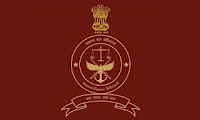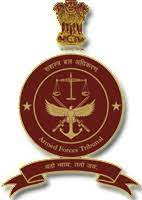Responding to the Constitutional Court of Korea’s decision to uphold for the fourth time Article 92-6 of the 61-year-old Military Criminal Act, which criminalizes consensual same-sex sexual acts in the military constitution, Amnesty International’s East Asia Researcher Boram Jang said:
“This continued endorsement for the criminalization of consensual same-sex acts within the Korean military is a distressing setback in the decades-long struggle for equality in the country. This ruling underscores the widespread prejudice experienced by LGBTI people in South Korea and the government’s lack of action to prevent harm and ensure equality which is their human rights responsibility.
“Article 92-6 has institutionalized discrimination, reinforced systematic disadvantages faced by LGBTI people and risked inciting or justifying violence against them, both inside the military and in everyday life. It has no place in Korean society and should be scrapped immediately.
“We renew our calls for South Korean lawmakers to repeal Article 92-6 of the military code now as the next step towards ending the pervasive stigmatization faced by LGBTI people in the country.”
Monday, October 30, 2023
ROK court again upholds criminalization of consensual gay sex
Another view on Pakistan's military courts case
Here’s a partial list of countries that have tried civilians in military courts: United States, Egypt, China, Turkey, Algeria, Bahrain, Bangladesh, Myanmar, India, Thailand, South Korea, Philippines, Iran, Syria, Russia, Colombia, Peru, Guatemala, El Salvador, Honduras, Argentina, Chile, Venezuela, Paraguay, Uruguay, Brazil, Mexico, Cuba, Lebanon, Jordan, Iraq, Libya, Tunisia, Morocco, Saudi Arabia and Iran. Why are civilians brought before military courts? There are several reasons for this. One scenario arises when a civilian is accused of a crime closely connected to or having an impact on the military. This category encompasses offences like assaulting military personnel or property, espionage, and treason. Another situation arises in the face of a national security crisis or emergency, where the government may believe that military courts are better suited to swiftly and efficiently address the case.
Pakistan has established a comprehensive legal framework that regulates the military justice system, with a strong commitment to upholding ‘legal principles’ and respecting ‘human rights’. Within this framework, there are robust safeguards in place to protect the rights of civilians who may be accused in military courts. This framework also unequivocally upholds the fundamental principle of 'presumption of innocence until proven guilty.' Civilians are ensured the right to legal representation, thus guaranteeing their ability to effectively present their defense. Furthermore, a well-defined mechanism for the appeal of military court decisions exists, providing an avenue to meticulously review the fairness of the trial and the legality of the verdict.
Two key conclusions can be drawn. First, the establishment of ‘special courts’ is not an unusual occurrence; it is a well-established practice in both developing and developed nations. Second, military courts have demonstrated the ability to adhere to the principles of ‘due process’ and international ‘human rights.’
Persuaded?
Thursday, October 26, 2023
Extension of time denied
Turning to the merits of the appeal, I note that the appellant did not present any evidence or a memorandum setting out the merits of the appeal. It is not the Court’s role to “guess” or “seek out” the merits of a case (Roberge; R. v. R.E.M., 2011 NSCA 8 (CanLII), 299 NSR (2d) 258, para. 39; R. v. D.P.B., 2002 NSCA 55 (CanLII), 2002 NSCA 55; R. v. Pettigrew, 1996 NSCA 17 (CanLII), 149 NSR (2d) 303).
Quote of the day from Houde v. H.M. The King, 2023 CMAC 10 (Oct. 24, 2023) (Bell, C.J.)
In contrast, the U.S. Court of Appeals for the Armed Forces does not require the accused to identify any appellate issue.
Wednesday, October 25, 2023
Government to appeal Pakistan Supreme Court decision
Tuesday, October 24, 2023
Landmark ruling in Pakistan
“Without prejudice to the generality of the foregoing the trials of civilians and accused persons, being around 103 persons who were identified in the list provided to the Court by the learned Attorney General for Pakistan by way of CMA No.5327 of 2023 in Constitution Petition No.24 of 2023 and all other persons who are now or may at any time be similarly placed in relation to the events arising from and out of 9th and 10th May, 2023 shall be tried by Criminal Courts of competent jurisdiction established under the ordinary and / or special law of the land in relation to such offences of which they may stand accused,” the court order said.
The court further declared that any “action or proceedings under the Army Act in respect of the aforesaid persons or any other persons so similarly placed (including but not limited Constitution Petition Nos. 24, 25, 26, 27 & 28 and 30 & 35 of 2023 6 to trial by Court Martial) are and would be of no legal effect.”
The court, with a majority of 4-1, held that the trial of civilians under Section 2d(i) and 2d(ii) of the Army Act was unconstitutional. “It is hereby declared by Mr. Justice Ijaz ul Ahsan, Mr. Justice Munib Akhtar, Mr. Justice Sayyed Mazahar Ali Akbar Naqvi and Mrs. Justice Ayesha A. Malik that clause (d) of subsection (1) of Section 2 of the Pakistan Army Act, 1952 (in both of its sub clauses (i) & (ii)) and subsection (4) of Section 59 of the said Act are ultra vires the Constitution and of no legal effect,” the judgment read.
The full text of the court's Order can be found here (pp. 5-6), with opinion(s) to follow.
Dawn has this report on reaction to the decision. E.g.,
Lawyer and columnist Reema Omer wrote on X [formerly Twitter] that if the media reports of the verdict were true, the judgment is “truly historic”.
“Not only does it mean 9-10 May violence accused will be tried by regular courts, it would also allow other civilians convicted by military courts (for example Idrees Khattak) opportunity for relief and [will] prevent such military injustice in future,” she said.
Monday, October 23, 2023
How to anger a court
And under the category of Most Bizarre Pleading of the Year, consider this Express Tribune account of a submission by a number of civilian court-martial defendants apparently seeking to intervene in opposition to the pending challenge to the trial of civilians by Pakistan's military courts. Excerpt:
The applicants have expressed all faith and confidence in the military authorities to provide justice to them and all other accused persons. “Therefore, we are requesting the military authorities that we may be tried and otherwise dealt under the provisions of Pakistan Army Act 1952 and Rules made thereunder and justice should be provided expeditiously,” the application read.
No chance they were pressured, of course. Maybe an effort to curry favor?
Saturday, October 21, 2023
Good order and discipline in the U.S. Coast Guard
An E-9 on a cutter received a negative CG-3307, was reassigned, and had permanent change of station (PCS) orders revoked after repeated harassing behavior amounting to a hostile work environment, including disparaging comments and disrespectful, physically aggressive, insubordinate, and intimating behavior towards senior. For example, the member punched a wall when asked to revise a document and threw galley laundry in the trash, among other incidents.
An O-5 was removed from primary duties for creating a hostile work environment by repeatedly commenting and questioning a subordinate about their sexual orientation and comments on another subordinate’s status as a mother, such as discussing the member’s medical concerns about motherhood with others and offering to take work away so the member could go home to her children.
An O-5 was removed from primary duties and recommended for separation after repeated comments of a sexual nature to a subordinate, including comments about his relationships and sexual history, the subordinates, and the subordinate’s relationship, and alluding to desiring a woman like the subordinate.
An E-4 of a cutter was removed from the E-5 advancement list and placed on probationary status after creating a hostile work environment by threatening another member of the crew with violence and by frequent outbursts and disrespect towards subordinates, peers, and supervisors.
The GOAD report’s traditional content, which includes results of courts-martial, including non-judicial punishment, and adverse administrative actions also saw a face lift.
Examples of accountability for UCMJ violations that were prosecuted at courts-martial included:
Court-martial conviction of an E-5 for possession and distribution of child pornography, resulting in reduction E-1, a year of confinement, and a dishonorable discharge.
Court-martial conviction of an E-4 for abusive sexual contact of another member by touching genitalia through clothing after a night of drinking with fellow crew members, resulting in reduction to E-1, 4 months confinement, and a bad conduct discharge.
Friday, October 20, 2023
Proposed changes to Manual for Courts-Martial
Comments on the proposed changes must be received no later than December 18, 2023. A public meeting to receive comments concerning the proposed changes will be held on November 14, 2023, at 10:00 a.m. in the Court of Appeals of the Armed Forces building, 450 E St. NW, Washington, DC 20442–0001 with an option for remote attendance. Details on remote attendance will be posted at least 7 days in advance of the meeting at https://jsc.defense.gov/Military-Law/Current-Publications-and-Updates/.
The JSC website also includes this useful information:
Note regarding MCM (2023 edition)
Update: The MCM (2023 edition) has been updated with an approved Preface as of September 15, 2023. This edition will be digital only and will not include the supplementary materials typically found within the MCM except for a Preface. Practitioners should refer to the supplemental materials (e.g., Discussions) and appendices (including Appendix 2.1) in the MCM (2019 edition) until further notice. A subsequent MCM (2024 edition) will incorporate Annexes 2 and 3 of the Executive Order and is forthcoming.
Wednesday, October 18, 2023
Why is Rear Admiral Cheng Dongfang no longer China's chief military judge?
Sunday, October 15, 2023
Irish military justice under scrutiny and change
It remains to be seen if faith among the Defence Forces in the court martial system can be restored. But one of the aims of a forthcoming bill is to ensure that gardaí, and not the military, will have sole jurisdiction within the state to investigate alleged sexual offences committed by those subject to military law, writes Mick Clifford.
Unfortunately, there is no specific reference or link to the "the Bill." We think this is what is being referred to: Criminal Law (Sexual Offences and Human Trafficking) Bill 2023.
The Minister for Justice Helen McEntee has secured government approval to publish a wide-ranging new Bill that strengthens the law around sexual offences and improves protections for victims of sexual offences and of human trafficking.
Among the main provisions of the Criminal Law (Sexual Offences and Human Trafficking) Bill 2023 is a strengthening of the law in relation to consent.
At present, a person can be found not guilty of rape if they honestly, but mistakenly, believed that they had the consent of the victim.
The law is subjective. In effect, the alleged perpetrator can claim they are not guilty of rape because they honestly but mistakenly believed they had consent.
The new Bill from Minister McEntee, a key element of her Zero Tolerance Plan to tackle Domestic, Sexual and Gender Based Violence will change this.
The question now will be whether the belief is one that a reasonable person would have held in the circumstances, rather than whether such belief was honestly held.
This belief must be objectively reasonable rather than subjective.
From Department of Justice published on 12 July 2023. Last updated on 11 August 2023.
Who runs India's Armed Forces Tribunal?
Stay in Lt-Gen Cadieu's case

Warning: The judicial decision
in this matter is subject to a non-publication and non-broadcast order under subs
486.4(1) of the Criminal Code, directing that any information that could
identify the victim or a witness shall not be published in any document or
broadcast or transmitted in any way.
Marieke Walsh, a senior political reporter, explains in a recent article that Justice Larry O’Brien of the Ontario
Court of Justice, a provincial court, stayed a charge of sexual assault against
retired lieutenant-general Trevor Cadieu and a co-accused person in Kingston,
Ontario.[1]
The reason for proceeding
before a civil court
At the outset, it is important to clarify the jurisdiction of the civil
courts in this case. This laying of the charges before a civil court of
criminal jurisdiction did not result from the application of former Justice
Arbour's recommendation that all cases of criminal offences of a sexual nature that
allegedly occurred in the CAF be referred to the civil courts. Rather, it stems
from the fact that the allegations concern incidents that took place in Canada,
at a time when military justice had no jurisdiction over such offences.[2] In addition, at the time
of the alleged offences, the jurisdiction of military justice was subject to a
three-year limitation period.
The context of the application
for unreasonable delay
In his 33-paragraph written decision[3], Justice O’Brien first
gives an overview of the context surrounding the application made by both
accused persons, “asserting that their right to be tried within a reasonable
time, as enshrined in s. 11(b) of the Canadian Charter of Rights and
Freedoms (Charter)[4], has been infringed”.[5] Both individuals were
charged in June 2022 with sexual assaults that allegedly took place in 1994
and/or 1995. The complaint was first submitted to the Canadian Forces National
Investigative Service (CFNIS) on September 4, 2021. The complainant gave two
additional statements to the CFNIS concerning LGen (ret’d) Cadieu, on October
19, 2021, and March 30, 2022[6].
To assist the Court in assessing delay from the date charges were laid
in June 2022, both applicants and the Crown provided Justice O’Brien with written
summaries of their timelines. These were included as appendices to Justice
O’Brien’s decision. In accordance with the Supreme Court of Canada's judgment in
R v Jordan[7] and R v Cody[8], the period beyond which
the right to be tried within a reasonable time may be presumed to have been
violated is eighteen (18) months after the charges were laid for cases tried in
provincial court.[9]
In the present case, the Crown “…
[did] not take the position that the nature of the disclosure or the allegation
makes it a complex case as described by the Supreme Court”.[10]
Additionally, according to the Crown, the delays prior to the setting of dates
were not the result of exceptional circumstances. However, the Crown argued
that the Defence was responsible for 87 days of delay. If that period of delay
were subtracted from the “total delay”[11],
it would put the “net delay”[12]
slightly below the presumptive ceiling for trials in provincial courts.[13]
The judge’s analysis
Justice O’Brien applied the
“calculation recipe” from R v Zahor[14],
guidance provided by the Ontario Court of Appeal, which laid out the steps in
evaluating an 11 (b) application under the Jordan
framework.[15]
Reviewing each step of the proceedings[16],
the judge was particularly concerned by the fact that “someone” took 9 months
before providing defence counsel with the complainant’s first statement. The
judge wrote:
That someone is not defence
counsel who each, orally and in writing, early and repeatedly requested the
complainant’s statements to little if any avail. It is not enough for the
military to hand off “the file” to the [civilian] crown office in July [2022]
without providing essential disclosure. Over 30 years ago the Supreme Court of
Canada in R v Stinchcombe [1991] 3
SCR 326, at p. 337-342 noted the crown must provide initial disclosure prior to
the accused taking crucial steps which affect his or her rights in a
fundamental way, such as election and plea. The Court accepted that initial
disclosure must include a copy of any statement of a potential witness as well
as the ability to inspect the electronic recording of any statement of a
prospective witness[17].
Reaffirming the
old maxim stated in Jordan that
“justice delayed is justice denied; an unreasonable delay denies justice to the
accused, victims and their families, and the public as a whole”, Justice
O’Brien allowed the application and stayed the charges against both individuals
pursuant to section 24(1) of the Charter.
The Crown
has 30 days from the date of the Justice O’Brien’s decision to file an appeal.
Aftermath?
A military justice commentator suggests there be an inquiry - presumably before the Military Police Complaints Commission of Canada – to look into how the military police are conducting these types of investigations and supporting subsequent prosecutions.
Saturday, October 14, 2023
Military justice and judicial independence at the Supreme Court of Canada
 In a recent Blog post, GMJR contributor Rory Fowler offers some observations regarding the appeals in Leading Seaman Edwards, et al. v R, which will be heard by the Supreme Court of Canada on 16 October 2023.
In a recent Blog post, GMJR contributor Rory Fowler offers some observations regarding the appeals in Leading Seaman Edwards, et al. v R, which will be heard by the Supreme Court of Canada on 16 October 2023.
Rory Fowler, "Military Justice and Judicial Independence at the Supreme Court of Canada" (13 October 2023) Online (blog): Law Office of Rory G Fowler <http://roryfowlerlaw.com/military-justice-and-judicial-independence-at-the-supreme-court-of-canada/>.
Friday, October 13, 2023
Welcome aboard
Thursday, October 12, 2023
Judicial independence--Canada
The CCLA will appear as an intervenor before the Supreme Court of Canada in R. v. Edwards et al. on Monday, October 16, 2023.
This appeal comes on the heels of decisions by military judges which held that the role and status of military judges as military officers in the chain of command compromises their institutional independence, denying an accused their right to a hearing before an independent and impartial tribunal under s. 11(d) of the Charter. The CCLA’s main concern in this case is how the decision by the court below, the Court Martial Appeal Court of Canada (“CMAC”), interpreted s. 11(d) of the Charter and the implications for judicial independence.
Wednesday, October 11, 2023
The Somalia Affair and the Transformation of Canadian Military Justice
For those unfamiliar with the Somalia Affair, the Canadian Forces deployed a Battle Group based upon the now-disbanded Canadian Airborne Regiment as part of a United Nations (UN) operation. While the bulk of the Battle Group performed admirably, some troops were involved in disciplinary misconduct and human rights abuses. Most notably, two soldiers beat to death a 16 year old Somali teenager named Shidane Abukar Arone. This incident proved to be the catalyst in a series of studies and subsequent reforms. Preston's article describes how the Canadian government remade Canada's military justice system in the aftermath of the Somalia Affair. Key architectural features of today's military justice system find their roots in this period of reform.
In the wake of the so-called "sexual misconduct scandal" that has gripped the Canadian Forces as of late, Canadian legislators and policy makers may wish to engage with some of the broader lessons that Preston describes.
Tuesday, October 10, 2023
Senior officer accountability, Nigeria
Mohammed was convicted on 4th October 2023 of 14 out of 18 counts of charges preferred against him by the Nigerian Army.
Major General James Myam, President of the General Court Martial had found the senior Army officer guilty of 14 out of 18 count charges.
The court ordered that the convicted senior military officer must return the sum $2,178,900 and N1.65bn to the account of Nigerian Army Property Limited (NAPL), which is about N3billion.
Monday, October 9, 2023
Trouble at the Armed Forces Tribunal
Sunday, October 8, 2023
The Caine again
The New York Times's Ben Kenigsberg has this brief but glowing review of the late William Friedkin's The Caine Mutiny Court-Martial. Excerpt:
Friedkin has skillfully updated the material for 21st-century sensibilities — it’s no longer all men, for one thing — and context. Sept. 11, 2001, stands in for World War II in the closing toast, which is intended to insult one character and is credible here in a way that other renditions sometimes haven’t been. In Friedkin’s hands, the audience, too, is likely to feel doused in the face.
You can find a trailer here.
Saturday, October 7, 2023
Correction
A link to the Panel's website has been duly added to the Courts, Blogs, NGOs, Sources list on the Reform home page. H/T to Col. James A. Young, USAF (Ret) for the link.
The National Guard
See Darcy Spears, Guarding the Guardsmen: Discipline and disorder in the Nevada National Guard. KTNV Las Vegas, 6 October 2023.
GMJR and NIMJ have followed military justice within the states’ National Guard organizations for some years.
Each state has a National Guard organization formed according to state and federal law. The commander-in-chief is the governor of the state. The State Guard is formed, organized, administered, and tasked by the state legislature with The Adjutant General (TAG) as its senior uniformed leader.
A state National Guard is a military reserve force composed of National Guard military members or units of each state and the territories of Guam, the Virgin Islands, Puerto Rico, and the District of Columbia, for a total of 54 separate organizations. It is officially created under Congress's Article 1 Section 8 ability to "raise and support armies."
The National Guard has a dual mission:To provide a trained and equipped force to supplement the regular Army and Air Force in times of national emergency.
To assist state and local governments in responding to natural disasters, civil unrest, and other emergencies.
National Guard members are part-time soldiers and airmen who maintain their civilian jobs or attend college while also participating in military training and drills. When activated for federal missions, National Guard members become part of the reserve components of the United States Army and the United States Air Force.
The National Guard is an important part of the nation's defense and security and plays a vital role in responding to emergencies at home and abroad.
Here are some examples of state National Guard missions:
- Responding to natural disasters, such as hurricanes, floods, and wildfires
- Assisting with civil unrest and emergencies
- Supporting law enforcement and public safety
- Providing security for special events
- Conducting search and rescue operations
- Deploying overseas to support national defense missions
There is no consistency in their disciplinary procedures. Some states have a separate system that adopts the federal UCMJ by law, some states prosecute military offenses in their local civilian court, and others have a blended system. Not all the states have adopted the ABA Model State Code of Military Justice.
NIMJ has a page (here) of the current military justice “regulations” by state.
Discipline and accountability issues facing the NG are not new.
Dennis Wagner, National Guard scandals in these 13 states raise questions about culture and accountability. USA Today, 25 November 2021.
Joel Grover, Chris Henao, Phil Drechsler, Tony Kovaleski, Liz Wagner and Felipe Escamilla, Federal Investigation to Probe Claims of Alleged Racism, Sexual Harassment in California National Guard. NBC4 News, 16 November 2012.
Thursday, October 5, 2023
Worth the Read
Abdul Majeed Ibrhim & Md. Zahidul Islam, Soldier's Constitutional Rights and Military Justice: Comparison Between the Republic of Maldives, Malaysia, and Other Jurisdictions. 9 J. Asian & Afr. Soc. Sci. and Humanities 1 (2023).
Is the independence of India's Armed Forces Tribunal compromised?
Spanish judiciary stymied by failure to reach political accord
The General Council of the Judiciary (Consejo General del Poder Judicial-CGPJ) in Spain is a constitutional body made up of judges and other jurists that exercises judicial functions with the aim of guaranteeing the independence of judges in the exercise of their judicial functions before the public. It deals with matters such as the nomination, promotion and transfer of judges; the inspection of courts and tribunals and disciplinary matters involving the judiciary. Giving this competence to the CGPJ avoids the possibility that another State power, in particular the Executive, could influence the independence of the judiciary, directly or indirectly.
Men-only draft upheld in South Korea
The Constitutional Court stated that the issue of determining the scope of military duty among citizens bearing the obligation of national defense should be flexibly addressed considering the rapidly changing domestic and international security situations and financial capabilities of the country. They emphasized the need to respect the broad legislative discretion of the National Assembly in shaping the specific obligations of national defense through legislation.
Furthermore, the Constitutional Court pointed out factors such as the inherent physical differences between men and women, the potential need for supplementary and wartime labor, and the limited number of countries that impose military duty on women in a comparative context. They suggested that in the long term, discussions on introducing a gender-neutral conscription system or transitioning to a volunteer system should be seriously considered through social consensus, taking into account factors like changes in birth rates and the supply of military manpower. However, at the present time, it is difficult to conclude that the legislative judgment of maintaining the existing conscription system is significantly arbitrary.
The decision is not yet on the court's website.
Tuesday, October 3, 2023
Explain yourself!
Monday, October 2, 2023
End-o'-Term
Houston, we have a problem
Withdrawal of remaining charge against Lieutenant-General Whelan
The withdrawal of the remaining charge against Lieutenant-General Steve Whelan (a charge under s 129 of the National Defence Act for an alleged act to the prejudice of good order and discipline) is merely the most resent example of problematic decision-making in the administration of military justice in the Canadian Forces (CF).
And it would be facile to suggest that the problem lies in the statutory processes available to CF decision-makers. Most of these missteps and problems arise from problematic decision-making. And there is a disturbing trend that these decisions are being driven not by considerations of legal principles but by concerns regarding public affairs.
It's time to start asking the difficult questions of the key statutory decision-makers responsible for these missteps.
Military drops case against Lieutenant-General Steven Whelan, 2 October 2023, CBC News (Canadian Press)
Why is Lieutenant-General Whelan being court martialed?, 1 October 2023, Blog: Rory Fowler Law
R v Harrison, 2023 ONCJ 392: Don’t Be Sold a Bill of Goods (Redux), 24 September 2023, Blog: Rory Fowler Law
MGen Dany Fortin & the MPCC, 30 May 2023, Blog: Rory Fowler Law
Noonan v AGC, 2023 FC 618 – An unsurprising result and its second-order implications, 5 May 2023, Blog: Rory Fowler Law
Sunday, October 1, 2023
Hope in Uganda after all?
The minister has said what is going on with the trial of the NUP 32 shows the lawlessness of security forces. It is the army subverting and abusing judicial processes, he says.
Mao has based on that conviction to promise to end the suffering of the NUP supporters.
“Let us review this matter at the end of October,” says Mao, a lofty dreamer who heads the opposition Democratic Party but last year, on July 21, 2022, accepted a deal that earned him a job and pawned his party into a partnership with the ruling NRM party of President [Yoweri] Museveni.
* * *
Mao says Uganda is a signatory to several international human rights conventions, including the African Charter on Human and People’s Rights that prohibit the trial of civilians in military courts.
“Military courts should not have circumstances where they have jurisdiction over civilians,” he says.
He also says that Uganda’s constitution guarantees independence of the judiciary.
“It is impossible to achieve this independence, when the army, an arm of the executive is trying civilians,” he says.
According to him, the general court martial was intended to only try soldiers.
“The only circumstance under which military courts could have jurisdiction over civilians is for instance, if a civilian acts in a manner which is harmful to security and in my view that should only be if someone cooperates with a foreign state,” he says.
Adding that with the NUP supporters, this has not been the case. He laments the army’s increasing tendency to try civilians at the slightest excuse.
“The trial of civilians in military courts in our country appears to be the rule rather the exception,” he says.
The Supreme Court of Uganda has yet to rule on a long-pending challenge to the military trial of civilians.





























